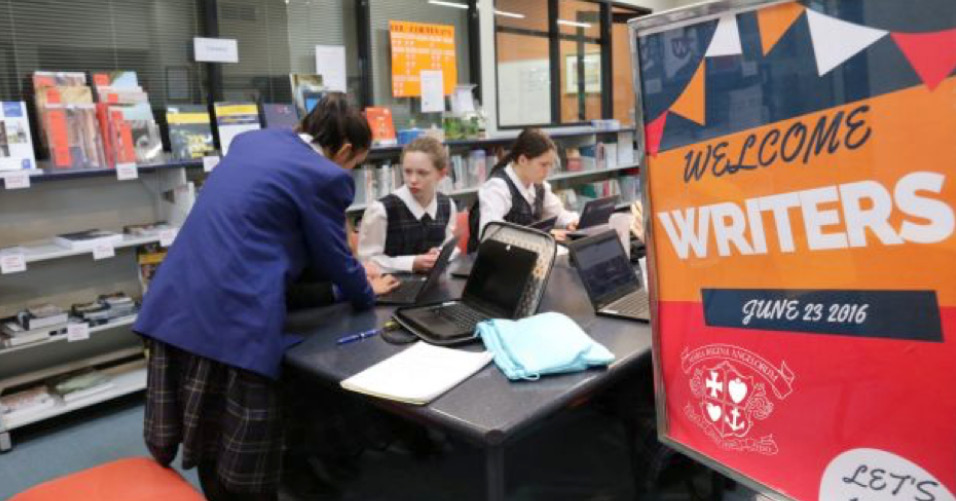Elizabeth Green, knowledge and learning strategist at an independent school for girls in NSW, decided to jump head first into the Maker Movement and enter her school in the 2016 Write a Book in a Day competition. She shared her story with The Sydney Morning Herald on 25 July 2016.
“The rise of DIY culture has been steady over the last 10 years, from humble home renovation to historic barn conversion, master chefs to junior chefs, shark tank entrepreneurship to Lord of the Flies-esque survival in the wild.
We have a national appetite for so-called regular people knee deep in creating. But there’s something else happening in public libraries and public spaces – the Maker Movement is gaining momentum and it’s bringing individuals and groups of individuals together to create, and sometimes market, viable products.
The movement isn’t just about making a buck, though. Increasingly young people and families are spending their Saturday afternoons learning how to do ‘stuff’.
I often wonder whether the Maker Movement is a reaction to an educational system that has too long privileged learning in the abstract over learning by doing, so much so that millennials (like me), Gen Xers and Gen Ys are flooding YouTube with homespun ‘how to’ tutorials – be it how to crochet a doily or program an arduino.
The willingness of libraries to turn over floor space to these enthusiastic tinkerers has inspired many school libraries to follow suit and bring more ‘doing’ into educational philosophy, or perhaps more fittingly, back into educational philosophy.
Loreto Normanhurst staff recently undertook professional development with educator Gary Stager, who reminded us that it was constructivist educationist Jean Piaget who said that knowledge is a consequence of experience.
Perhaps he might have foreseen the trend towards people learning by doing or perhaps he simply had the common sense to think that if we offer children the experience of doing something they will surely construct knowledge in the process. With this idea in mind the Loreto library ran Write a Book in a Day, effectively creating a school within a school where 116 students gathered in the library to be writers, illustrators, editors and team members for the day. We had five primary school teams and nine secondary school teams, with 14 books produced in the one day.
Watching the students resolve creative differences, act on one another’s ideas, communicate (and sometimes fail to communicate) was an absolute delight. The library was abuzz with high intensity but it was the students who brought the intensity. When Stager spoke to the staff, he spoke about tapping into the intensity and passion that young people have by offering them real world opportunities to create.
While they had a set of parameters to adhere to, stories, illustrations and creative decisions were entirely the students’ own. Once published, the books are packaged and sent to children who, for a multitude of reasons, are confined to hospital beds and therefore confined to experiencing the world outside through the magic of books and storytelling.
Moving away from what Stager termed ‘fake problems’ to engaging with the real world is crucial in making learning meaningful. A moment that brought this home to me was when a group reached 6.30pm and realised that they were about 1000 words shy of the minimum word limit. Their disappointment was palpable on hearing that they would be disqualified from the judging process. When they were reminded that the kids would still receive and read their books it was like watching a Dr Jekyll/Mr Hyde transformation: it really wasn’t about the accolades, but the altruism of creating joy for someone they will most likely never meet.
The day was as much a pastoral exercise as it was an academic one. On one hand, giving students more than a 55-minute period to experiment with and execute an idea led to what psychologists often call ‘flow’, a positive feeling of being completely immersed in a task or an energised focus. The flip side was the collaborative aspect. We know that soft skills such as emotional intelligence and empathy are essential in workplaces of the future and an activity like Write a Book in a Day brought the necessity of collaborative skills to the fore. Not only do all students gain from shared expertise where each individual plays a role but also from the sheer difficulty of working under stressful conditions with a variety of personalities.”


